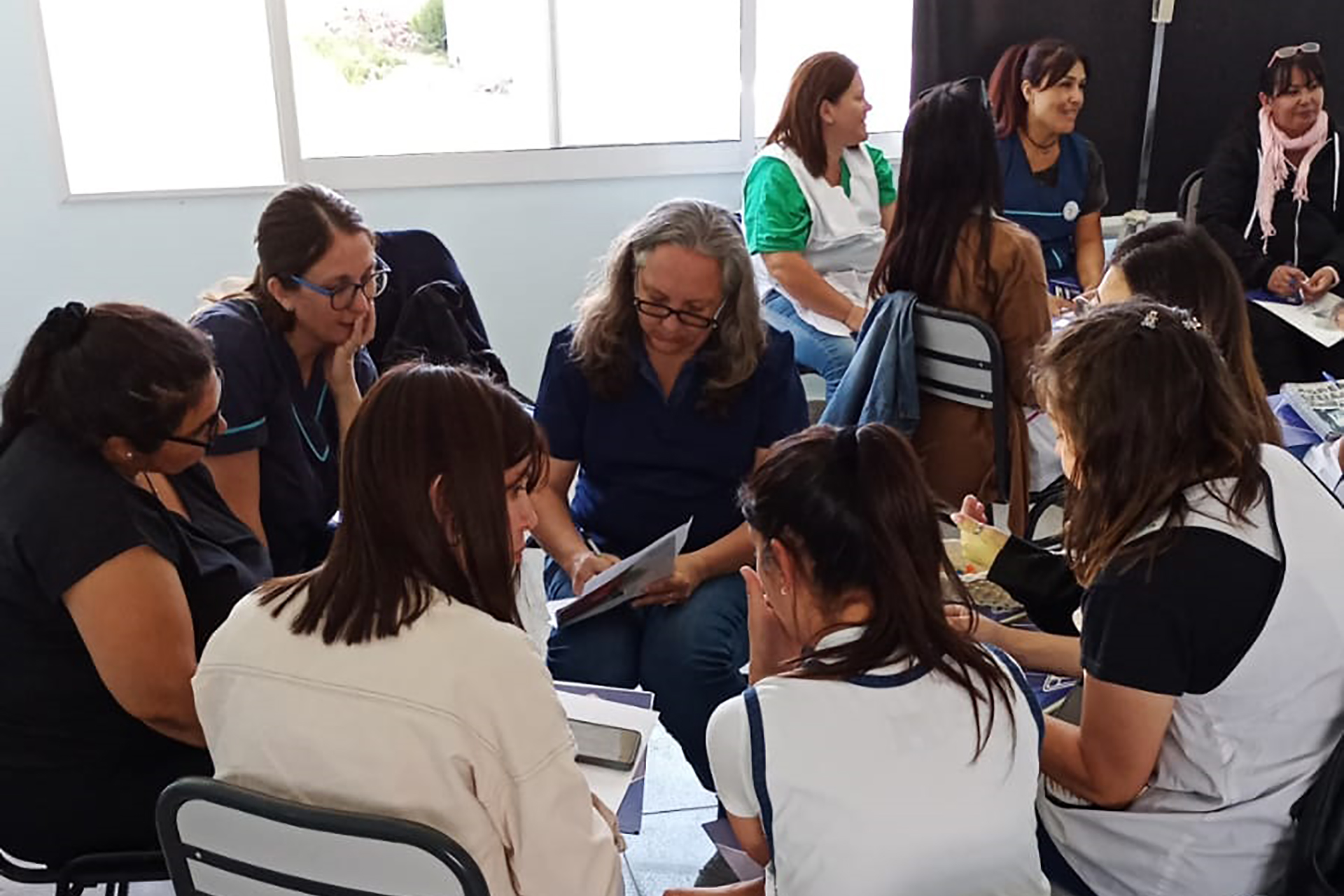The Directorate of Special Education of the General Council of Education (CGE) promotes inter-institutional meetings in departments throughout the province, to share and strengthen good educational practices in the modality.
“The exchange between institutions about their daily tasks favors improvements in educational proposals for students, always thinking and projecting their future,” remarked the director of Special Education, Alexia Mors, adding: “We are addressing the educational plan and the needs of each department territorially.”
In the current month in Chajarí, Federation department, a meeting was held with the management teams, the support configuration (EOE) for the initial, primary and secondary levels, the supervisor of Zone I, the director of the modality and the technical pedagogical team. During the day, the current needs of the educational institutions in the region that were present were addressed: Comprehensive Education School No. 8 V. Fissore, from Chajarí; Comprehensive Education School No. 16 Illia, Federation; Comprehensive Educational Center No. 5, of San Jaime, and Comprehensive Educational Center No. 12, of Villa del Rosario. Experiences were also exchanged about current challenges and educational trajectories, both their own and those that have been reoriented to the Special Education modality.
The meeting in Chajarí had a reach of 241 students and aimed to offer educational proposals that consider the development and future projection of the students. In addition, the opportunity was taken to work with the Support Configuration team for students with visual disabilities. “This team has made important progress in improving its administrative function and has adopted previous suggestions to strengthen pedagogical aspects, integrating specific material and the use of ICTs,” explained Mors. It also focused on opening up to the community, through the creation of brochures and awareness materials on visual care. In the future, it is planned to incorporate additional simulators and applications to enrich pedagogical practices in 2025.
Along these lines, on November 12, a meeting was held in the department of Islas del Ibicuy, with the participation of institutions from the departments of Islas del Ibicuy and Gualeguaychú. The institutions present were: School of Comprehensive Education No. 32 Alcancía de Ilusiones, of Ibicuy; Comprehensive Education Center No. 8 Nuestra Señora del Rosario, Villa Paranacito; Comprehensive Education Center No. 9, Ceibas; and School of Comprehensive Education No. 2 F. Rizzuto, of Gualeguaychú. The day brought together the management teams, the supervisor of Zone D and the departmental teams of schools from the four institutions, with a reach of 251 students.
A network of collaboration and mutual strengthening between institutions continues to be consolidated, in order to guarantee inclusive, equitable and quality education for all students in the province.
Meetings and how they have impacted your school’s approach to inclusive education?
Thank you for joining me today, Alexia. Can you tell us more about the importance of these inter-institutional meetings and how they contribute to the advancement of educational practices in the province?
Guest: Absolutely! These meetings are essential for sharing best practices and addressing the unique needs of each department in the province. By bringing together various stakeholders, including school administrators, teachers, support staff, and specialists, we can collaborate and learn from one another to improve educational outcomes for all students, especially those in the special education modality. It’s about building a strong network of support and fostering a culture of continuous improvement.
How do these meetings specifically benefit students with disabilities?
Great question! Firstly, these meetings help to ensure that students with disabilities have access to the resources and support they need to succeed, regardless of their location within the province. We are able to share successful strategies for inclusive education and make sure that all students have access to quality instruction. Additionally, the meetings provide an opportunity for families and caregivers to connect with others who may be facing similar challenges, forming a valuable support network.
Can you elaborate on the achievements that have been made in recent months due to these meetings?
Certainly. One of the key achievements has been the improved coordination between support staff and schools, which has led to better educational outcomes for students with disabilities. We’ve also seen progress in the use of technology and tools like simulators, which are transforming the way we teach and learn. By working together, we’ve been able to address some of the administrative challenges faced by schools and improve the overall quality of education in the province.
Moving forward, what are some of the goals or initiatives that you hope to achieve through continued inter-institutional collaboration?
Our main goal is to continue building upon the successes we’ve had and keep pushing for progress in the field of special education. We want to increase access to technology and resources for students with disabilities, while also fostering a greater sense of community and collaboration among schools and institutions. Ultimately, we want to ensure that every student in the province has the opportunity to reach their full potential.
Alexia, thank you for your insights. Marcos, as a school administrator, can you share your experience with these


